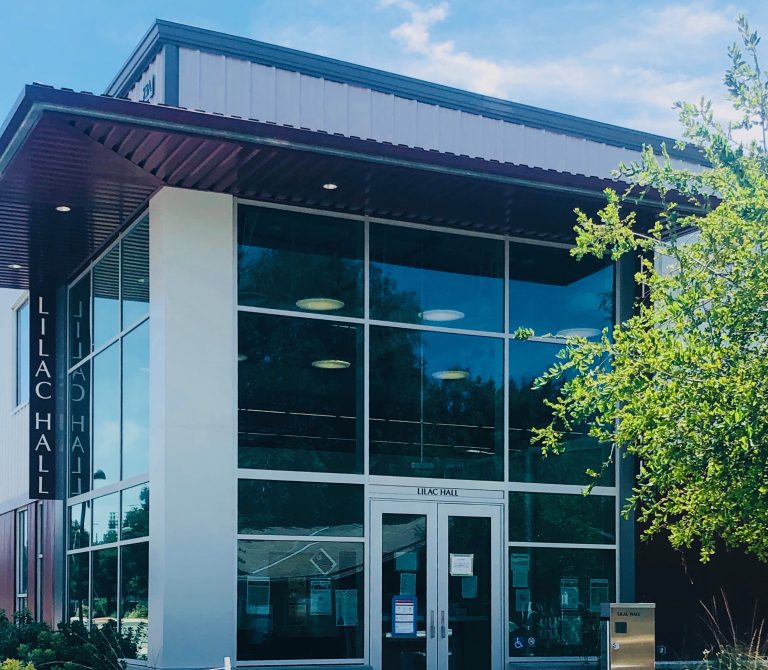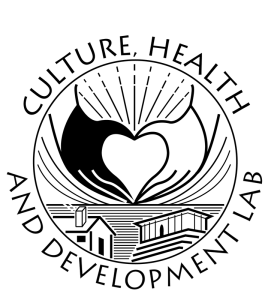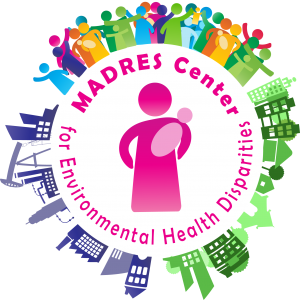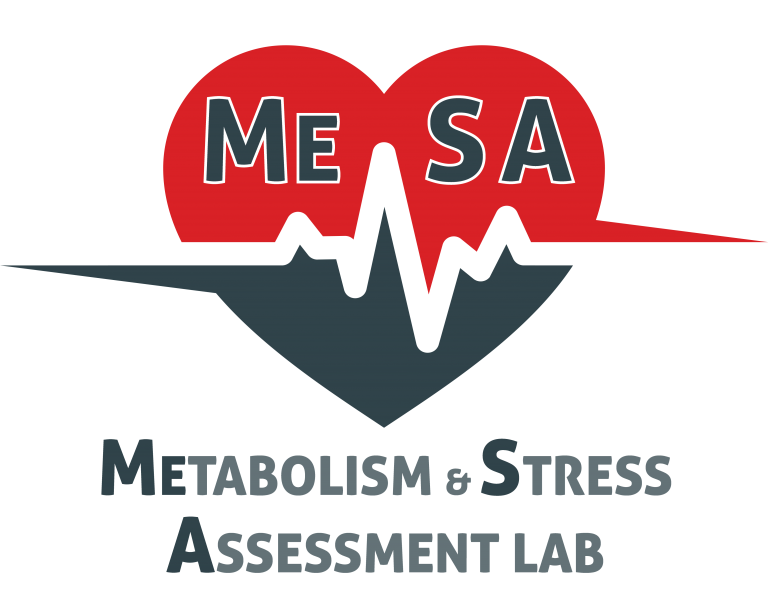
Our Research
Everyday life stressors and community level burdens have been shown to alter brain biology. Psychoendocrinology literature shows compelling evidence that stress-induced changes to the body may contribute to obesity and metabolic diseases. Specifically, psychosocial and environmental stressors can disrupt hypothalamic-pituitary-adrenal (HPA) axis activity, which in turn will alter cortisol levels throughout the day.
Disrupted cortisol patterns have been shown to be associated with increased risk for obesity and type 2 diabetes. Work in this area of research has implications for public health and health care practitioners by raising awareness of health risks associated with stress and the need for stress-reduction programs and interventions.
The overarching research aim of the MeSA pilot study to understand the complex relationship between various stressors, HPA-axis activity, and body fat. In this effort, we will characterize perceived, community, and biological stress and assess their relationships with body fat measures.
Since our lab is grounded in clinical epidemiological design, we only use quantitative methods. Our data are collected via self-reported surveys, health behavior assessments, and physiological measures from biospecimens.
Our Team
Associate Professor
Claudia Toledo-Corral is an Associate Professor in the Department of Health Sciences at CSUN
and an Adjunct Associate Professor at the University of Southern California (USC). Dr. Toledo-
Corral has a background in biological sciences, health psychology, and anthropology/cultural
studies, and obtained her M.P.H. and Ph.D. in Preventive Medicine from USC. She has a long-
standing research agenda in the field of obesity and associated disease risk in minority
populations. Dr. Toledo-Corral’s past work includes the study of the biological underpinnings of
pediatric obesity and diabetes risk, assessing the efficacy of clinical diagnostic methods of
diabetes, and examining the physiological role of stress on obesity and cardiometabolic risk.

My journey in research began during my undergraduate studies at CSU San Marcos, where I was
an American Psychological Association Research Scholar and a Ronald E. McNair Scholar.
During this time, I conducted research examining the impact of sociocultural stress on fetal
programing and perinatal maternal mental health among women of Mexican descent. This
experience solidified my interest in understanding the effects of sociocultural stressors within
marginalized communities, particularly the Latinx population.
As a graduate student and a Chancellor’s Doctoral Incentive Program Scholar, my research
expanded to focus on stress processes and protective factors through the lens of health
psychology and developmental science, particularly among Latinx adolescents. My work aims to
deepen our understanding of the relationship between stress and health within broader systems of
oppression.
Currently, as a postdoctoral fellow, I hope to continue my work with marginalized communities
and further develop my expertise on the health-related outcomes of discrimination. As a new
member of the Metabolism and Stress Assessment Lab, I am excited to collaborate with a diverse
time and engage with students with a broad range of expertise, to advance this important area of
research.
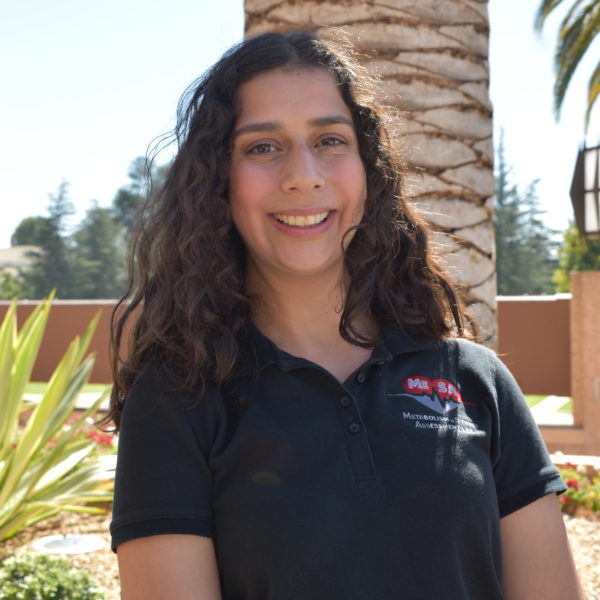
Applied Epidemiology
Kimberly graduated with her Master of Public Health with a concentration in Applied
Epidemiology. In the Metabolism and Stress Assessment Lab (MeSA) Lab, she is the lead project
coordinator for the Allostatic in Los Angeles Youth (ALLY) study assisting with recruitment and
data collection. Her master’s thesis consisted of ‘Examining the Associations between Cortisol
Measures with Type 2 Diabetes Markers by Sociodemographic Factors among Black/Latinx
Adolescents with Overweight and Obesity’ using the Diabetes Risk and Ectopic Adiposity in
Minority Youth (DREAM) Study. In the 2021–22 academic year, she was awarded the California
Pre–Doctoral Sally Casanova scholarship and was a CSUN Teaching Fellow. Her future goals
include pursuing a doctoral degree in Epidemiology and a career in academia. The research
agenda she plans to pursue is to study the effects of social determinants of health on chronic
diseases in ethnic minority youth.

MPH Applied Epidemiology
Renee is a graduate student in the Master of Public Health program with a concentration in Applied Epidemiology. Her current research interests include investigating psychosocial factors contributing to metabolic stress, which may be associated with chronic disease. As a future PhD student, she aims to integrate the role of epigenetics in these relationships. Her long-term goals include completing a Ph.D. and representing first-generation Hispanic females in academia within the STEM field, following the direction of her mentor and principal investigator, Dr. Claudia Toledo-Corral.

MPH Applied Epidemiology
Breana is a graduate student of the Master of Public Health student in the Applied Epidemiology program at California State University, Northridge. She also holds a B.S. in Public health from CSUN. Before joining the lab, Breana’s research interest involved investigating how Environmental pollutant exposures are associated with cardiovascular risk among ethnic minority youth, infants, and expecting mothers. Specifically, she is interested in how air pollutants may alter biological mechanisms and development and if relationships differ among biological sex, gender, ethnicity, and age. Breana’s future goals involve pursuing a doctoral degree in Environmental Epidemiology and a career in academia.
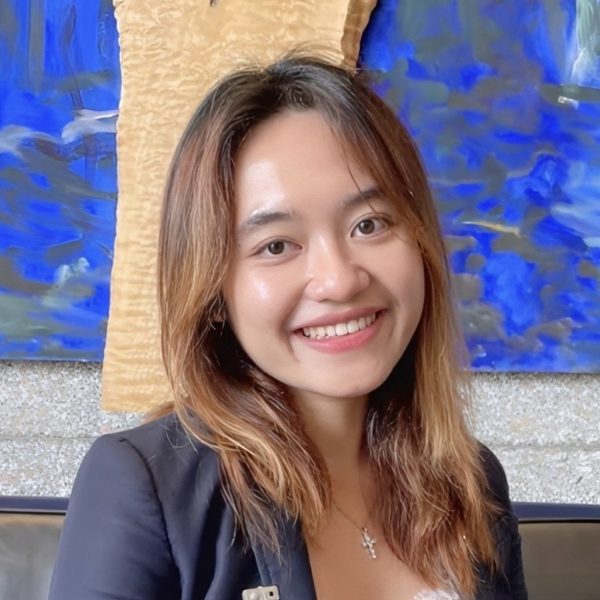
MPH Applied Epidemiology
Agatha Santos is a graduate MPH student with an emphasis in Applied Epidemiology.
She obtained her Bachelor of Science in Public Health at California State University,
Northridge. After graduating, she is pursuing her PhD in Epidemiology with a goal to
specialize in cancer prevention and treatment, as well as patient advocacy, especially
within minority communities. Having witnessed and recognized the need for
innovative and quality medical care, she is driven by her passion to advocate for
cancer patients and contribute to improving the quality of cancer treatment and
increasing healthcare access. Ultimately, she plans to specialize in breast cancer
treatment and prevention within the Asian-American Pacific Islander community.
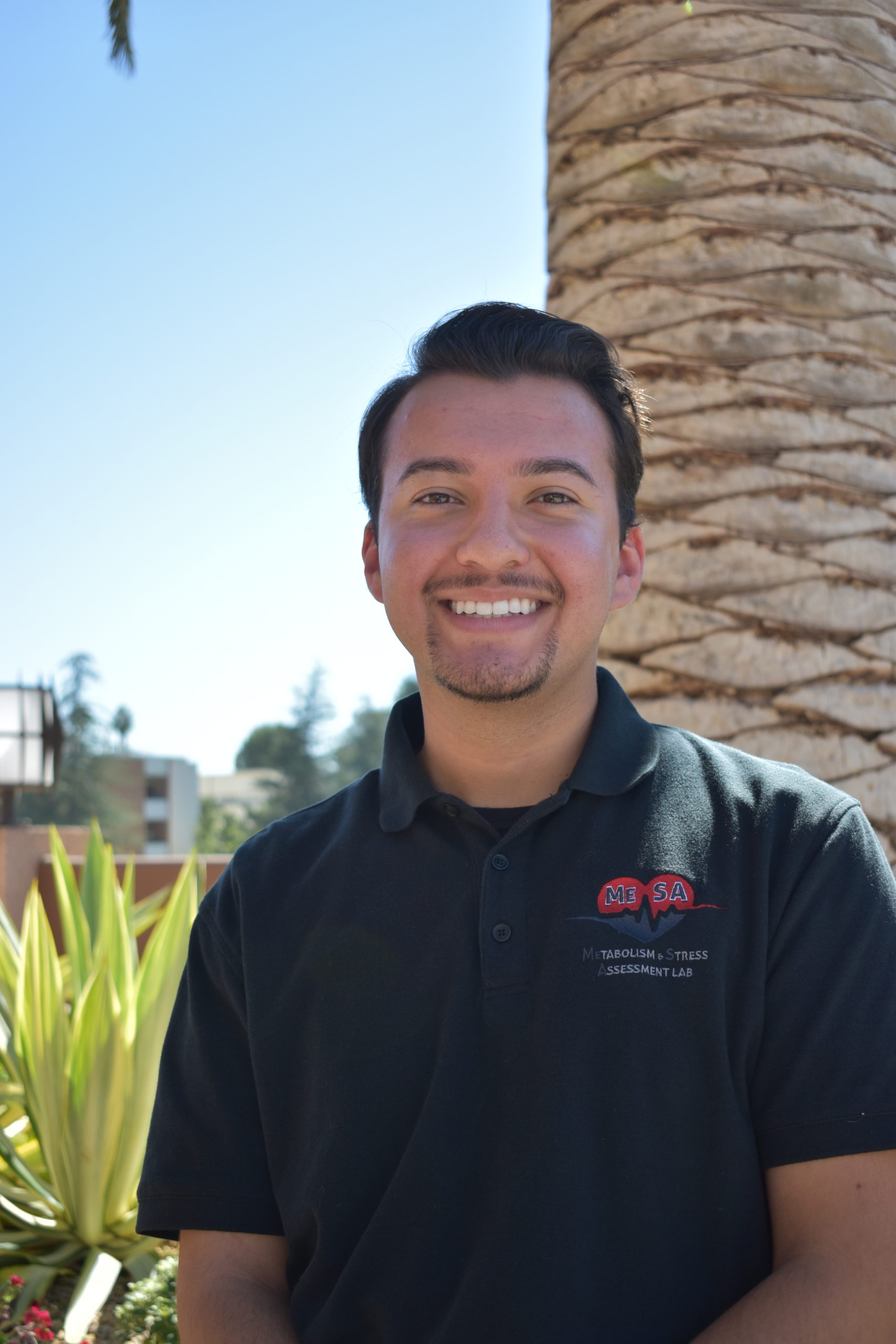
B.S., Cell & Molecular Biology
Joshua A. Vazquez is a fourth-year cell and molecular biology student at California State
University, Northridge (CSUN). Using a basic sciences curriculum and an epidemiological
research focus, he hopes to attain pertinent knowledge about biological aspects of disease and
discover how these findings translate to the healthcare field. He is also interested in exploring
proactive preventive healthcare options for under-resourced Hispanic-serving communities
such as his hometown of Oxnard, California which are disproportionately impacted by
cardiovascular disease. Ultimately, Joshua would like to apply to MD/PhD programs to become
a physician-scientist to study cardiovascular disease and teach at the university level.
Since 2024, Joshua has been a fellow in the NIH Undergraduate Research Initiative for Student
Enhancement (U-RISE) Program under Dr. MariaElena Zavala. He serves as a research
collaborator for the Culture, Health, and Development (CHD) Lab led by Dr. Yolanda Vasquez-
Salgado. He is also the Vice President of the Chemistry & Biochemistry Club and the American
Chemical Society (ACS) Student Chapter at CSUN led by faculty advisor Dr. Ravinder Abrol.

Marcus Broussard is a public health graduate student at California State University, Northridge.
He completed his bachelor’s degree in kinesiology from California State Polytechnic University,
Pomona in 2022. His current research interests involve exploring how various forms of
discrimination contribute to stress-induced physical and mental illness.
Josie E. Gomez is a 1st year graduate student pursuing a Master of Public Health with a
concentration in Applied Epidemiology at California State University, Northridge. Josie is interested
in infectious disease, understand, treat, and prevent using evidence-based approaches. She holds a
Bachelor of Science in Public Health from California State University, Northridge, as of Spring 2023.
Josie hopes to gain more knowledge in research by using epidemiological methods to understand
further the many aspects of research within the public health field. Her future goals include working
in outbreak investigation as an epidemiologist and helping communities globally. After completing
her Master of Public Health, Josie intends to work in a research setting to help advocate for disease
risk from a global view for communities with little access to healthcare interventions.”
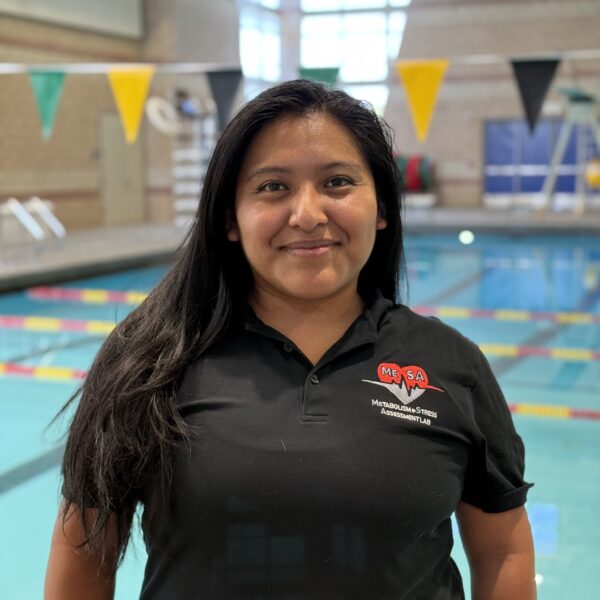
Stacie Hernandez is currently a graduate student in the Master of Public Health with a
concentration in Applied Epidemiology. Her research interests include social
determinants of health, health equity, and Type 2 Diabetes within minority
communities. She hopes to one day help improve health outcomes within the Oaxacan
Community.
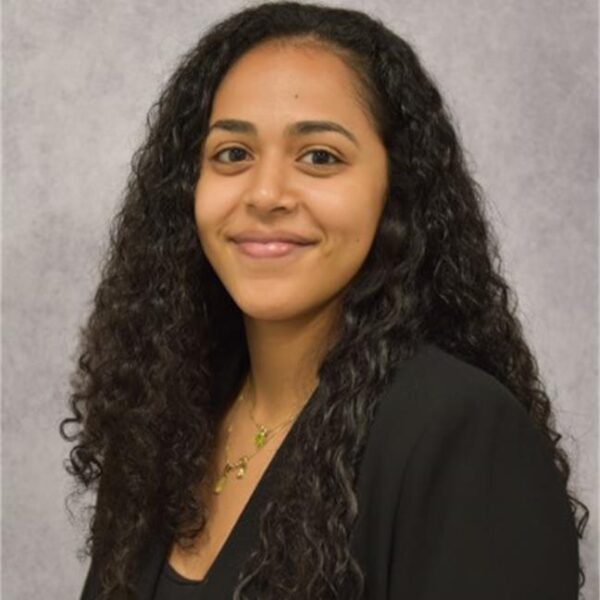
Natalia Rizo is currently a graduate student in the Master of Public Health – Applied
Epidemiology program at CSUN. She received her Bachelor’s degree in Chemistry from UC Davis.
Her future goals include attending medical school and pursuing a career in dermatology, with a
specific interest in the diagnosis and treatment of skin conditions in patients of color. As part of
the MeSA lab, she hopes to gain relevant knowledge on all aspects of research and hands-on
experience with epidemiological methods.
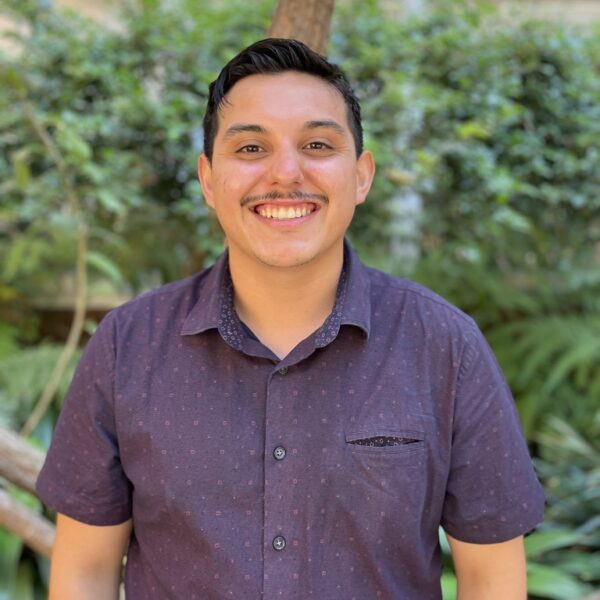
Luis Arenas is an undergraduate student set to graduate with a Bachelor of Science in Public
Health (BSPH) in Spring 2025. He is passionate about health education, community engagement,
and addressing health disparities, particularly among underrepresented communities.
His research interests focus on health equity, chronic disease prevention, and sexual health, with
an emphasis on improving access to care for marginalized populations. As a Health Education
Intern at a diabetes management clinic, he has worked closely with patients to promote chronic
disease prevention and management. Additionally, he had the opportunity to present research on
health equity at the 2024 CDC Conference in Atlanta, GA, which strengthened his skills in
public health advocacy and research.
After graduation, he plans to become a Certified Health Education Specialist (CHES) and work
as a health educator before applying to graduate school to pursue a Master of Public Health
(MPH) degree. His goal is to help individuals better manage their health conditions while also
engaging in research to further understand and address health disparities.
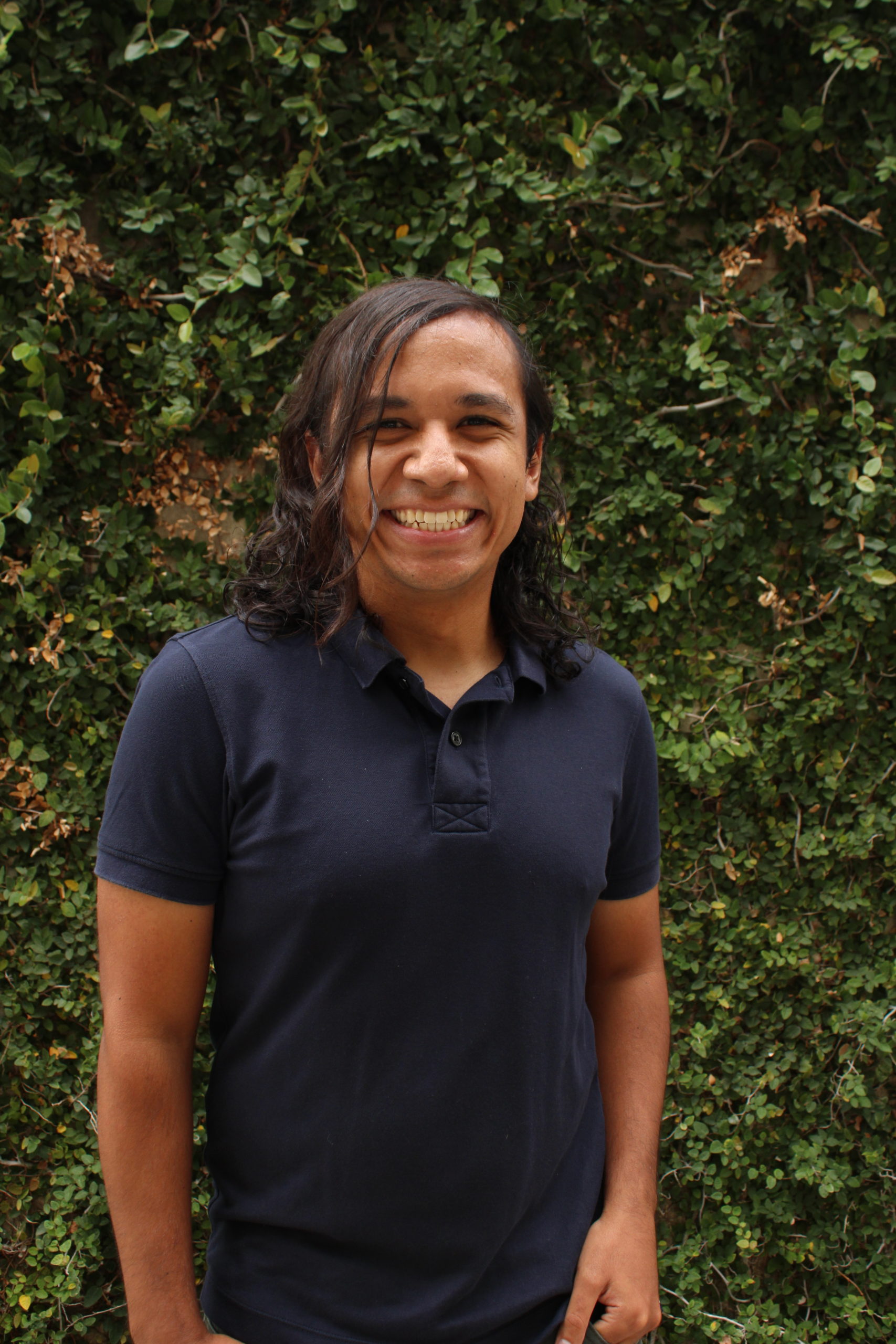
Jeremy Argueta is a Business Information Systems major at California State University Northridge (CSUN). While at CSUN, He has done research for the Positive Augment Research and Development Lab. Also, he has created, designed, and maintained the website for the Mesa Lab.
Lab Gallery

Our Work
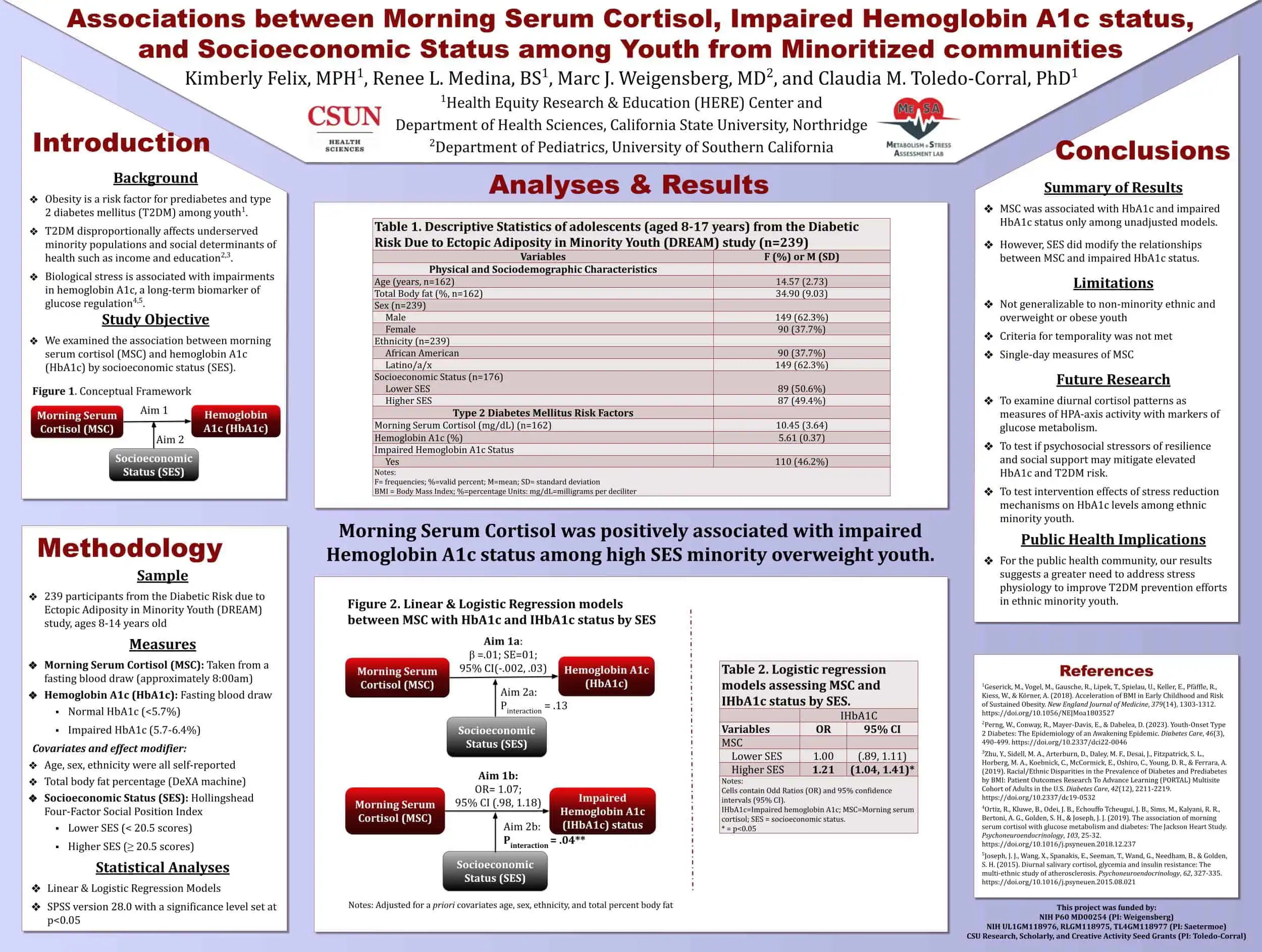
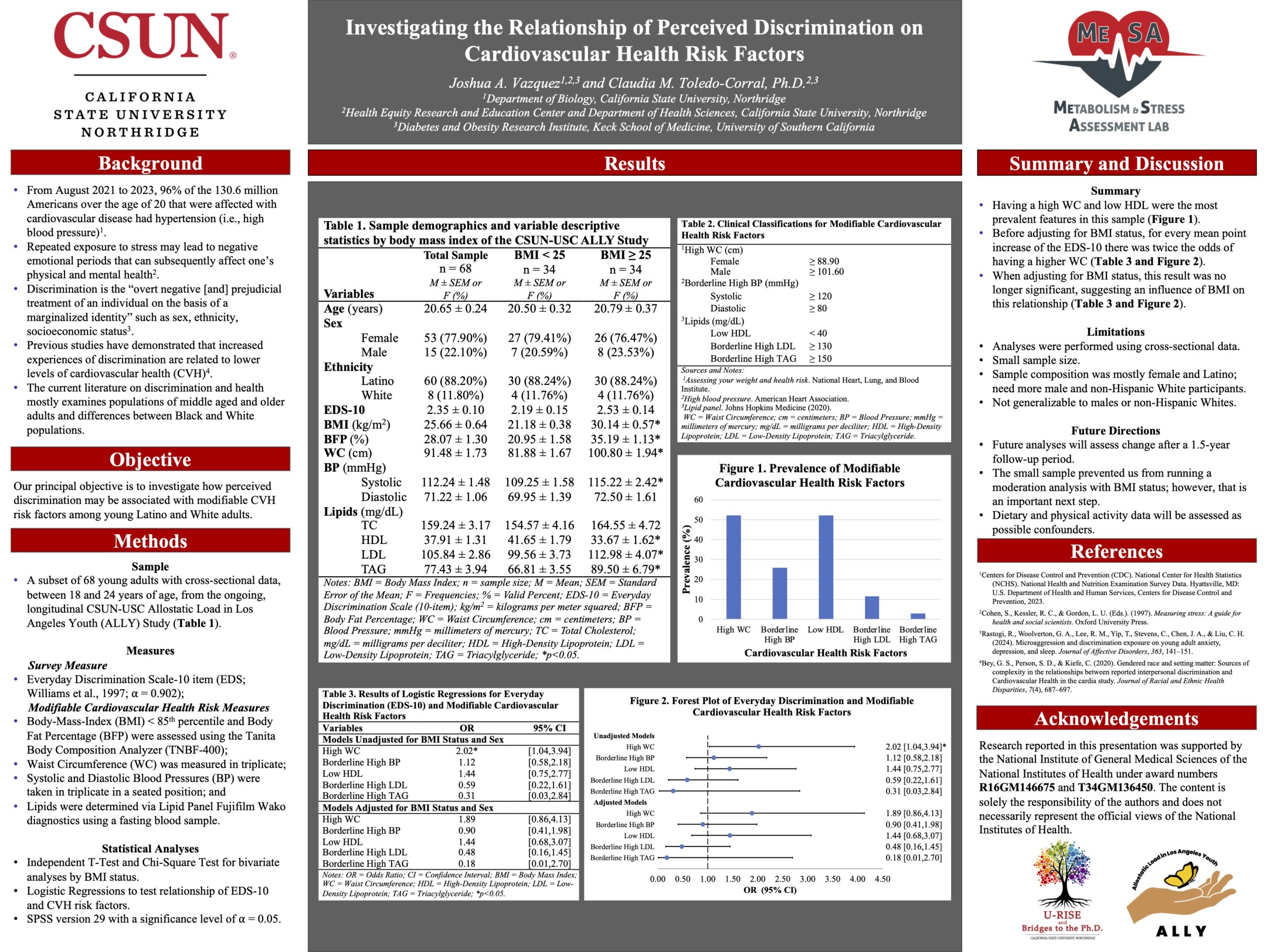
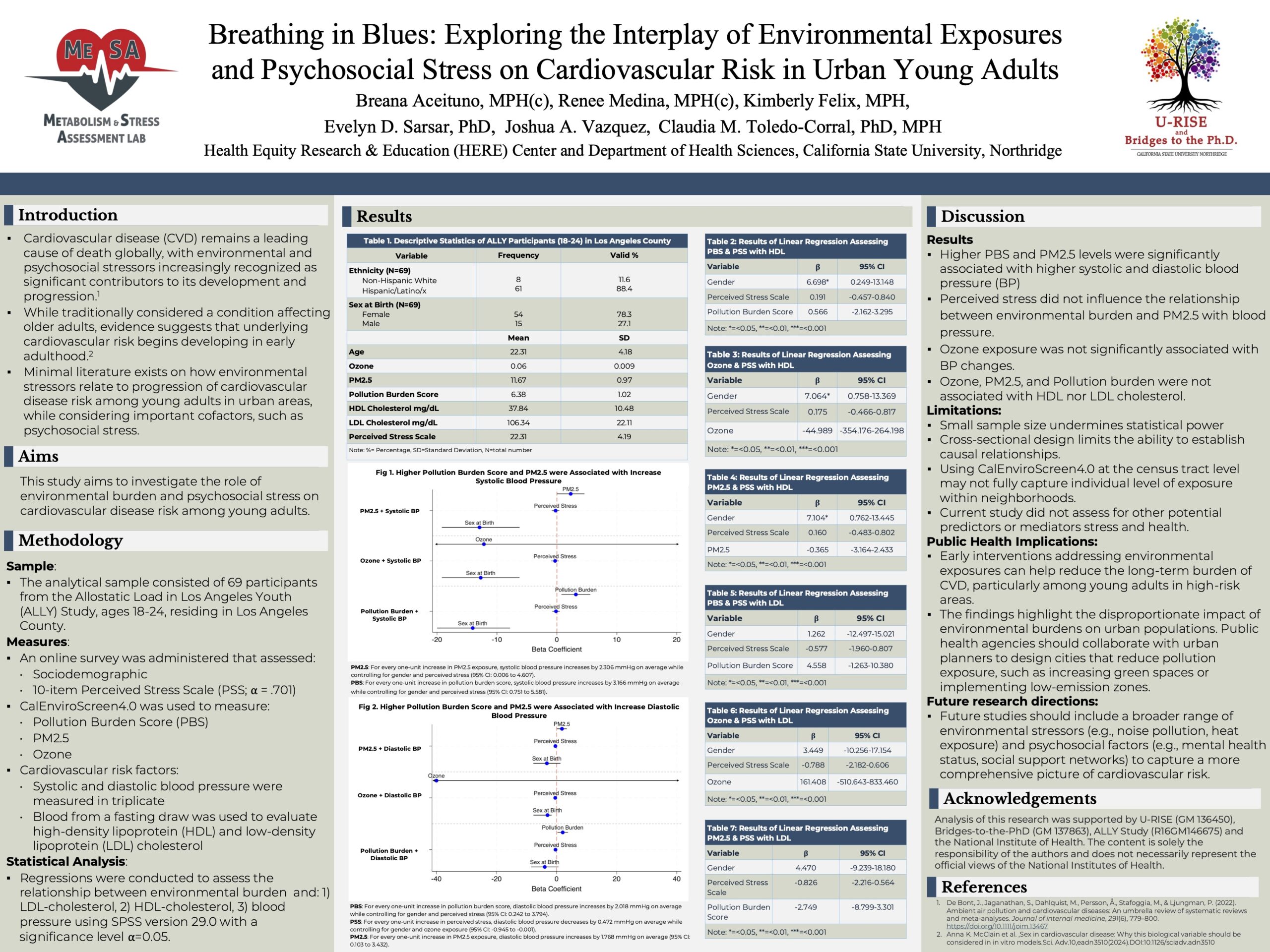
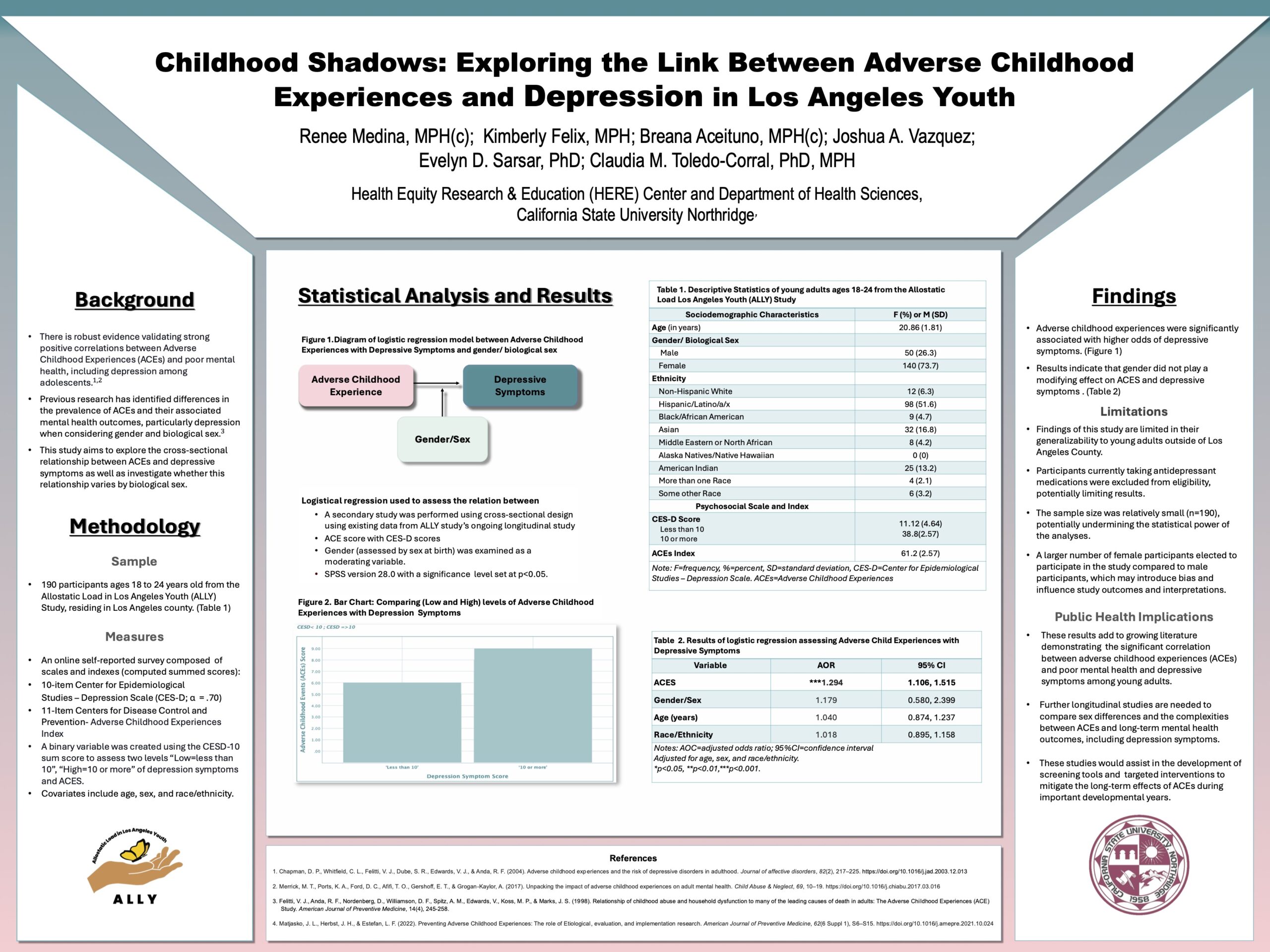
Contact Us
Location
18111 Nordhoff St, Northridge, CA 91330
Contact us
Phone: 818 677 4937
Email: claudia.toledo-corral@csun.edu
